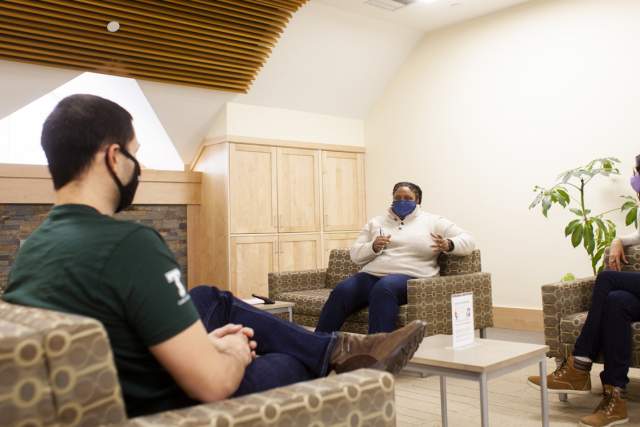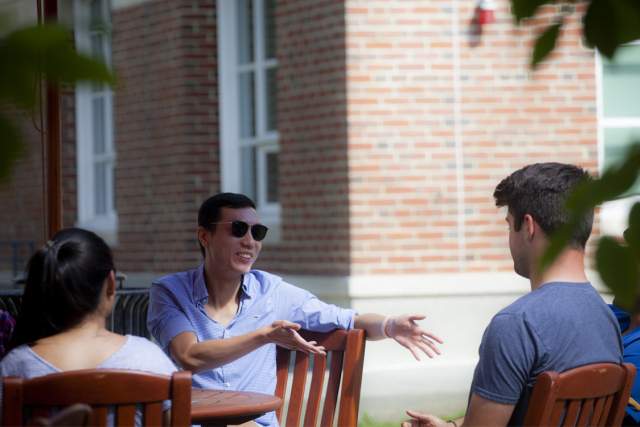What do you love most about your work with students?
I think of myself as a very active listener. The part of my job I love the most is when a student walks into my office very unexpectedly and with a specific challenge. I think one of the skills that I bring is really being fully present with students in times of consequence—it’s one of the mantras I use for a higher approach to my work. I listen to what they are saying, what they’re not saying, hearing the values they espouse, and ask whether the decisions they're making with those values could grow with the vision they have for themselves. I really try to reflect back what I'm hearing in hopes that it helps them bring a different level of critical thinking to what is important to them.
It’s almost effortless to be inspired by students at Tuck, especially when you hear their stories, the sacrifices they made to be here, and what it costs both financially and socially to be in this space. This is an investment they're making not just in themselves, but for their future, for their families. I feel very fortunate to be able to have this time with them and hear their stories.
Thanks to you, Tuck has been partnering on local events with the Vermont-based JAG Productions, whose mission is to produce classic and contemporary Black theatre. What made you kick off this partnership?
I serve as the chair on the board of directors of JAG, so there was a natural opportunity to connect the two organizations. I never would have imagined that when I moved to the Upper Valley, a Broadway-caliber theater house producing the largest number of new Black theater productions would be right in my backyard. Jarvis Green, JAG’s founder and artistic director, is creating space for Black playwrights to tell Black stories in a way that catalyzes support, compassion, and love through the lens of the African American experience. I want our students to have exposure to the brilliant art Jarvis is bringing to the Upper Valley community.
What does it mean to be a leader in a diverse work environment? What does it mean for you as a leader to create more equitable practices? What does it mean for you to foster a more inclusive environment where people really feel like they belong? I want students to reflect on these questions and focus on creating meaningful change in the future businesses they will lead.
One example of how we’ve partnered is early in the fall with the launch of JAG’s Theatre on the Hill, a series of outdoor productions held on the grounds of King Arthur Flour, which is walking distance from Tuck. We were able to hold tickets for students who could literally walk across the bridge over to KAF to witness quality theater. It’s just a beautiful learning opportunity that we should be taking advantage of and I’m excited to see how this partnership grows.
What excites you about the future?
With all the great feedback I’ve received from T’21s, staff, and administration, I’m excited for the opportunity to expand the intercultural leadership program and scale it with a broader subset of students. Frankly, I think every student I’ve talked to has a real clear sense of what their personal responsibility is in creating more equitable practices. There's no real gray area here, so I'm excited about bringing this conversation to a broader swath of the community and listening to their voices as the endeavor moves forward. Beyond that, I’m excited as we continue to find more ways to connect in person. I think we've learned that Zoom is very functional, but nothing can replace that in-person connection. Finally, I’d like to challenge our students and entire community to move the conversation beyond just performative gestures to real action, real change. I think that's where I want to see our students primed for action.

